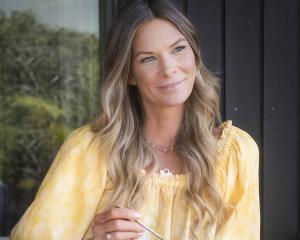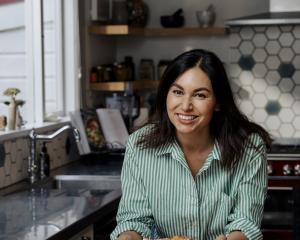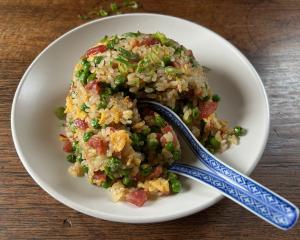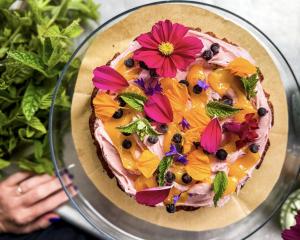Food connects people, but it's more than just sitting round a table together.
It might be children helping in the kitchen or vegetable garden, socialising with a gardening group in a community garden, talking with the grower at the farmers market, or talking about what you are eating, says Ruth Zeinert.

Appointed the DCC's food resilience officer six months ago, she is working on strengthening our local food system, everything from growing, production and manufacture, through distribution systems, to consumption and waste, she says.
''We are looking at the food system in its entirety and how we can strengthen it in the local context, how sustainable, resilient to shock or stress can we make our own local food system.''
The project follows in the footsteps of exciting, groundbreaking work in the United Kingdom and the United States, but her role is the only one of its kind in local government in New Zealand.
It emerged out of a series of community resilience forums which recognised there were already many people working in this field locally, but leadership was needed to bring them together, see where the gaps were and where more energy was needed.
''It's about making sure we are not duplicating effort but also seeing how we can strengthen work in this space by all being on the same page and working to the same kind of vision.''
Groups include Our Food Network, the Otago farmers market, various researchers and academics working on food systems, geography, health, nutrition and wellbeing, Otago Polytechnic's living campus gardens, Ahika consulting, social services such as food banks and Food Share, community gardens and the vegetable growers club, passionate foodies and the hospitality industry.
There are three key areas in the food resilience project, she explains.
The environmental aspect looks at climate change and protecting our high-class arable soils from urban development, as well as preparedness for natural or economic emergencies.
Then there is the economic aspect, supporting local food and beverage businesses and developing Dunedin as a food destination for tourists with events and festivals.
The third aspect is to do with health and wellbeing, and food security and accessibility, she says.
''Commercially, we don't grow anywhere near enough fresh produce to feed everyone.
''We are looking at ways to make growing food more attractive and more viable in this area, and part of that is protecting high quality land so it's there for food production if we need it.
''The key to this for me is pulling all the bits and pieces together and getting information out to the public. It's a real leadership role the council is taking.''
The first result of her initial six months in the job will be the launch of the Good Food Dunedin website later this month.
''The website will have heaps of information on it, whether it's about starting a food business or growing your own food or where to buy locally or what food events might be coming up,'' she says.
''Then we will look at developing a food charter and that will facilitate people actively and consciously engaging in what we are trying to do engaging with local food systems.
''Then we'll be developing a plan that encompasses both the partners and the council. Many have plans of work, some don't, they are just interested foodies, and bring all those work plans in together.''
One idea is to have fruit trees and vegetable gardens dotted around the city and accessible to the public, she says.
''They do exist. There's a big apple tree near where we live but people aren't sure whether they can take the fruit or not and this year it all ended up on the ground.''
However, it is not enough just to plant fruit trees or vegetable gardens in public spaces. They have to be maintained and weeded, trees pruned, and pests controlled, and there should be signs explaining the project to the public, she says.
Visible vegetable gardens would show people you could grow food here.
''I'm sure a lot of people think Dunedin is too cold, but you pick the right spot. And the market sells local produce right through winter.''
There are community gardens dotted around the city, often dependent on the leadership of one or two people, but she would like to encourage more people to grow food in their backyards or possibly in allotments.
''Many people think they don't have time, but you can couch growing your own food in terms of spending time with your family and being outdoors and teaching your children about where food comes from and growing this beautiful healthy nutritious food, understanding fresh seasonal produce and how it serves you and your family better,'' she says.
She intends the food resilience project to stretch beyond Dunedin city and embrace all of southern New Zealand and, eventually, the whole country.












